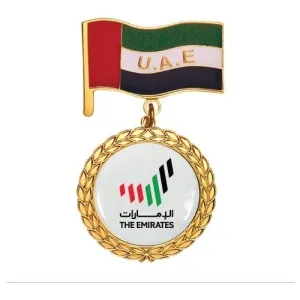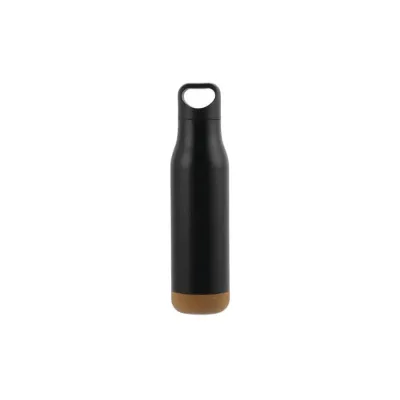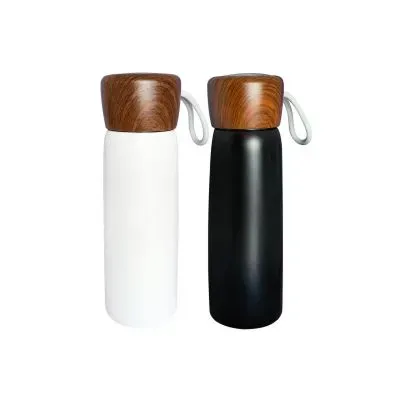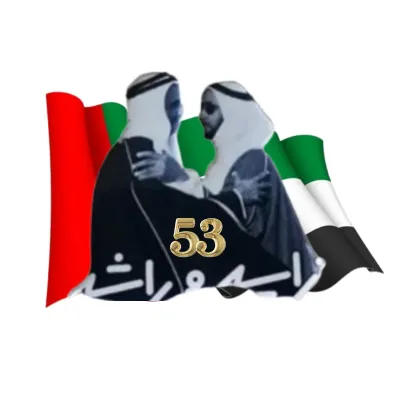Meaning Colors of Nigerian Flag
What is the Meaning Colors of Nigerian Flag?

In the tapestry of nations, flags serve as powerful symbols, encapsulating the essence, values, and history of a country. Among these, the N
igerian flag stands tall, adorned with hues that tell a story of resilience, diversity, and unity. With its bold green, striking white, and the ever-present touch of the green coat of arms, Nigeria's flag is not merely a piece of cloth but a beacon of hope and identity for its people. Let us embark on a journey to unravel the rich tapestry of the Nigerian flag, exploring its colors, significance, and the historical context that shaped its creation.
The Colors of Nigeria's Flag: Green, White, and the Coat of Arms
Green
Green, the dominant color of Nigeria's flag, symbolizes the nation's lush vegetation, abundant natural resources, and agricultural wealth. It reflects the fertility of the land and the aspirations for a prosperous future. The deep green evokes a sense of growth, vitality, and renewal, portraying Nigeria's resilience in the face of challenges.
White
The broad band of white that stretches horizontally across the flag symbolizes peace and unity. It signifies the nation's commitment to harmony, tolerance, and the peaceful coexistence of its diverse ethnic, religious, and cultural groups. White stands as a reminder of Nigeria's quest for tranquility amidst diversity and its resolve to uphold the principles of equality and justice for all its citizens.
Coat of Arms
At the center of the flag lies Nigeria's coat of arms, featuring an eagle and a shield adorned with a wreath of flowers. The eagle, a symbol of strength, courage, and freedom, represents Nigeria's resolve to soar to greater heights and overcome obstacles. The shield embodies the nation's defense and the protection of its sovereignty. The wreath of flowers symbolizes the diverse cultural heritage and the beauty of Nigeria's landscape, while the two supporting horses represent dignity and pride.
The Significance of Nigeria's Flag
Unity in Diversity
Nigeria is a melting pot of diverse cultures, languages, and traditions, with over 250 ethnic groups. Despite this diversity, the Nigerian flag stands as a unifying force, representing the collective identity and aspirations of its people. It serves as a potent symbol of national unity, reminding Nigerians that, despite their differences, they are bound together by a common destiny.
National Pride
The flag instills a sense of pride and patriotism among Nigerians, serving as a rallying point for citizens at home and abroad. Whether it is displayed at sporting events, diplomatic missions, or national celebrations, the flag evokes a strong sense of belonging and allegiance to the nation. It serves as a source of inspiration for Nigerians to strive for excellence and contribute to the development and prosperity of their country.
Representation on the Global Stage
On the international stage, Nigeria's flag represents the country's identity, values, and aspirations. It serves as a diplomatic tool, signaling Nigeria's presence and influence in global affairs. Whether it is flying proudly at the United Nations headquarters or adorning the uniforms of Nigerian peacekeepers serving in conflict zones, the flag symbolizes Nigeria's commitment to peace, cooperation, and sustainable development.
Design and Adoption
In 1959, as Nigeria prepared for independence, a committee was tasked with designing a national flag and coat of arms that would capture the essence of the nation. Led by prominent Nigerian leaders and scholars, including Chief Anthony Enahoro and Dr. Nnamdi Azikiwe, the committee embarked on a collaborative process to develop symbols that would resonate with the aspirations and identity of the Nigerian people. After careful consideration and debate, the design for Nigeria's flag was unveiled, featuring the iconic green and white colors that symbolize the nation's natural beauty, unity, and peace.
The Historical Context of Nigeria's Flag
Colonial Legacy
The history of Nigeria's flag is intertwined with its colonial past. Prior to independence, Nigeria was under British rule, and the Union Jack served as the official flag of the colonial administration. However, as the call for independence grew louder, there arose a need for a distinct national symbol that would reflect Nigeria's sovereignty and aspirations for self-determination.
The Emergence of National Symbols
In 1959, as Nigeria moved closer to independence, a committee was tasked with designing a national flag and coat of arms. The committee, composed of eminent Nigerian nationalists and representatives from various regions, embarked on a meticulous process to create symbols that would capture the essence of the nation. After much deliberation and debate, the design for Nigeria's flag was unveiled, featuring the iconic green and white colors that symbolize the nation's verdant landscape and its quest for peace and unity.
Independence and Evolution
On October 1, 1960, Nigeria gained independence from British colonial rule, marking a historic milestone in its journey towards nationhood. The Nigerian flag was hoisted high, symbolizing the dawn of a new era of freedom, self-determination, and national pride. Since then, the flag has served as a powerful emblem of Nigeria's sovereignty, resilience, and the enduring spirit of its people. Over the years, the flag has evolved to reflect changes in the nation's political landscape and aspirations, while remaining a steadfast symbol of unity, strength, and heritage for generations to come.
Conclusion
In conclusion, the Nigerian flag is more than just a piece of cloth; it is a living testament to the nation's history, values, and aspirations. With its vibrant colors and rich symbolism, the flag embodies the spirit of unity, strength, and heritage that defines Nigeria. As the nation continues to navigate the complexities of the modern world, the flag will remain a steadfast symbol of pride, resilience, and hope for generations to come.
Spotlight on Trending Promo Gear
Browse the most popular and trending Corporate Gifts
Promotional Sports Water Bottles
Promotional Sports Water Bottles
Promotional Sports Water Bottles
Back To School Gifts
Promotional Sports Water Bottles
Promotional Sports Water Bottles
Promotional Sports Water Bottles
Eco Friendly Bottles
Promotional Sports Water Bottles




















